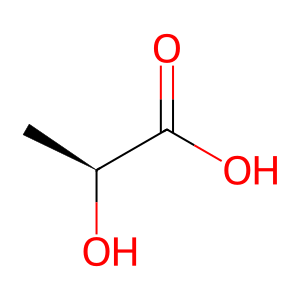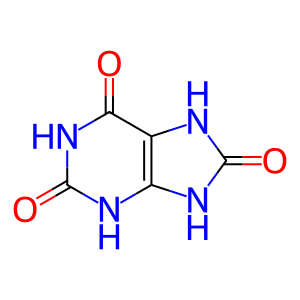Reaction: Defective SLC22A12 does not exchange extracellular urate for cytosolic LACT
- in pathway: Defective SLC22A12 causes renal hypouricemia 1 (RHUC1)
Urate is a naturally occurring product of purine metabolism and is a scavenger of biological oxidants. Uric acid readily precipitates out of aqueous solutions causing gout and kidney stones. Due to this ability, changes in urate levels are implicated in numerous disease processes. The human gene SLC22A12 encodes urate transporter 1 (URAT1), predominantly expressed in the kidney and is involved in the regulation of blood urate levels. This transport can be trans-stimulated by organic anions such as L-lactate (LACT). Defects in SLC22A12 result in idiopathic renal hypouricaemia 1 (RHUC1; MIM:220150), a disorder characterised by impaired urate reabsorption at the apical membrane of proximal renal tubule cells and high urinary urate excretion. Mutations that can cause RHUC1 include W258*, E298D, L418R, R90H and G361V (Enomoto et al. 2002, Wakida et al. 2005, Ichida et al. 2008).
Reaction - small molecule participants:
LACT [cytosol]
urate [extracellular region]
Reactome.org reaction link: R-HSA-5625210
======
Reaction input - small molecules:
(S)-lactic acid
7,9-dihydro-1H-purine-2,6,8(3H)-trione
Reaction output - small molecules:
Reactome.org link: R-HSA-5625210


